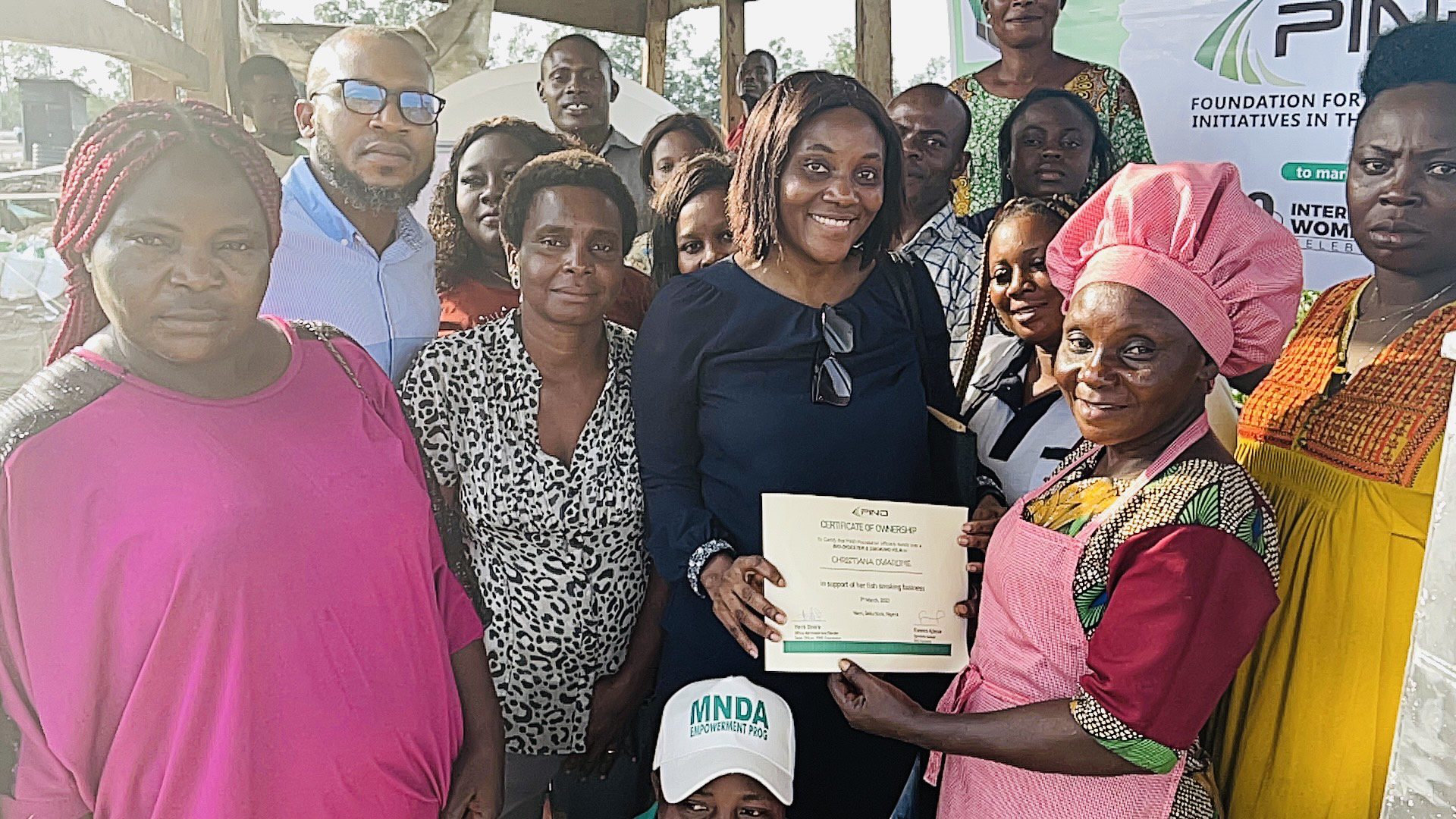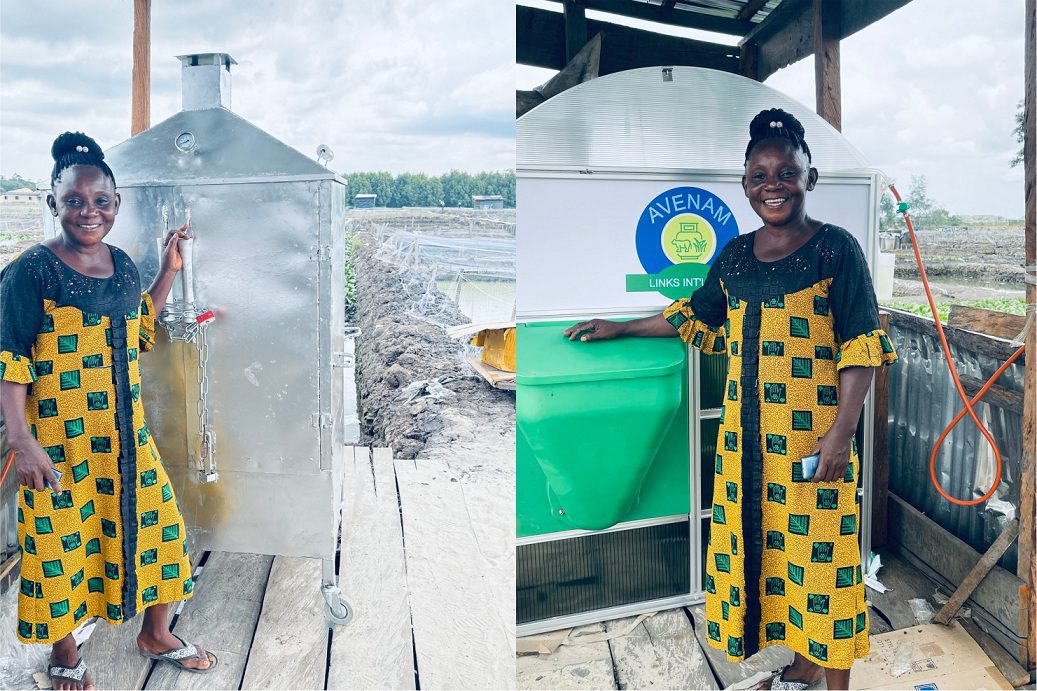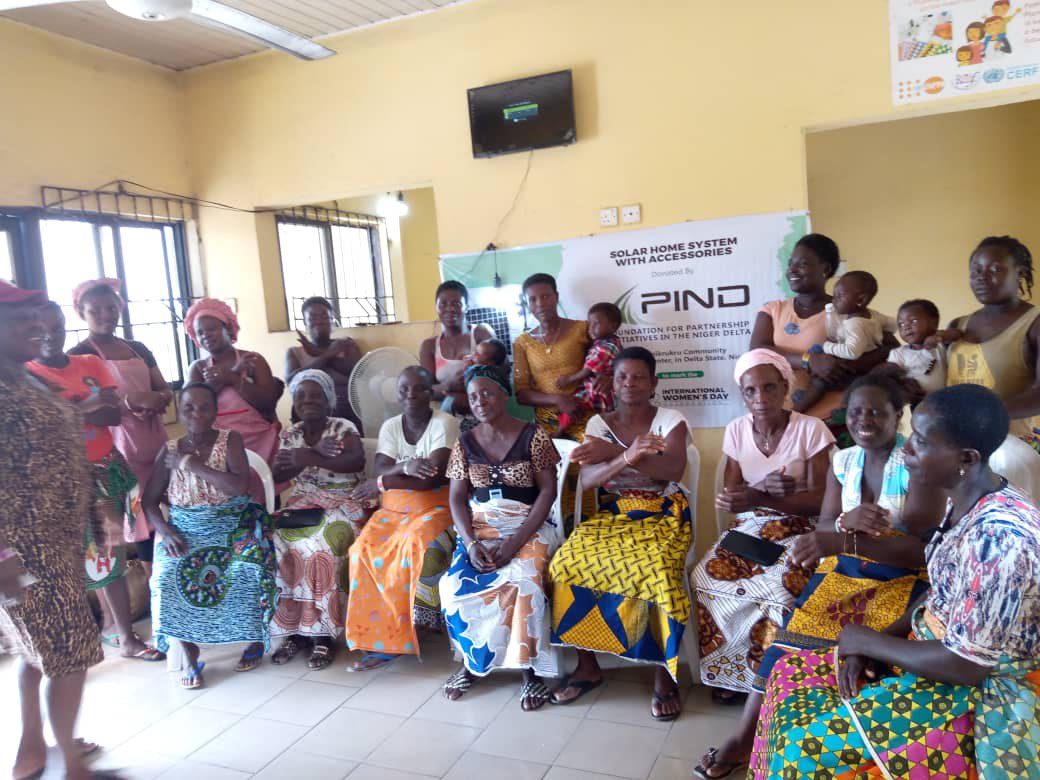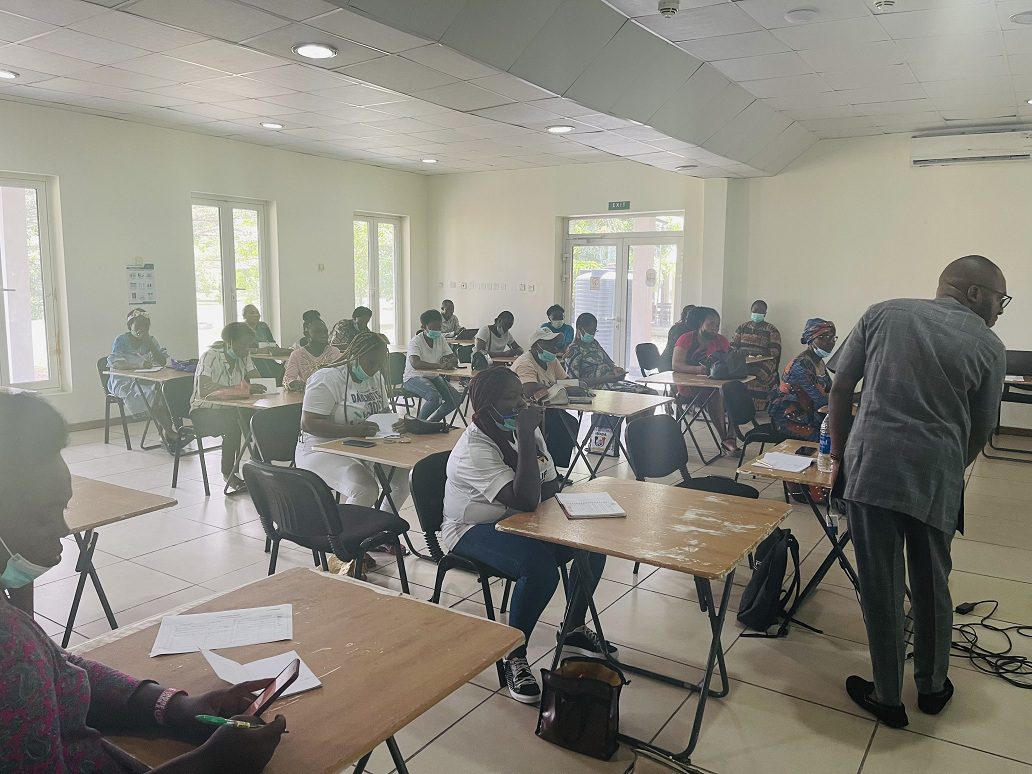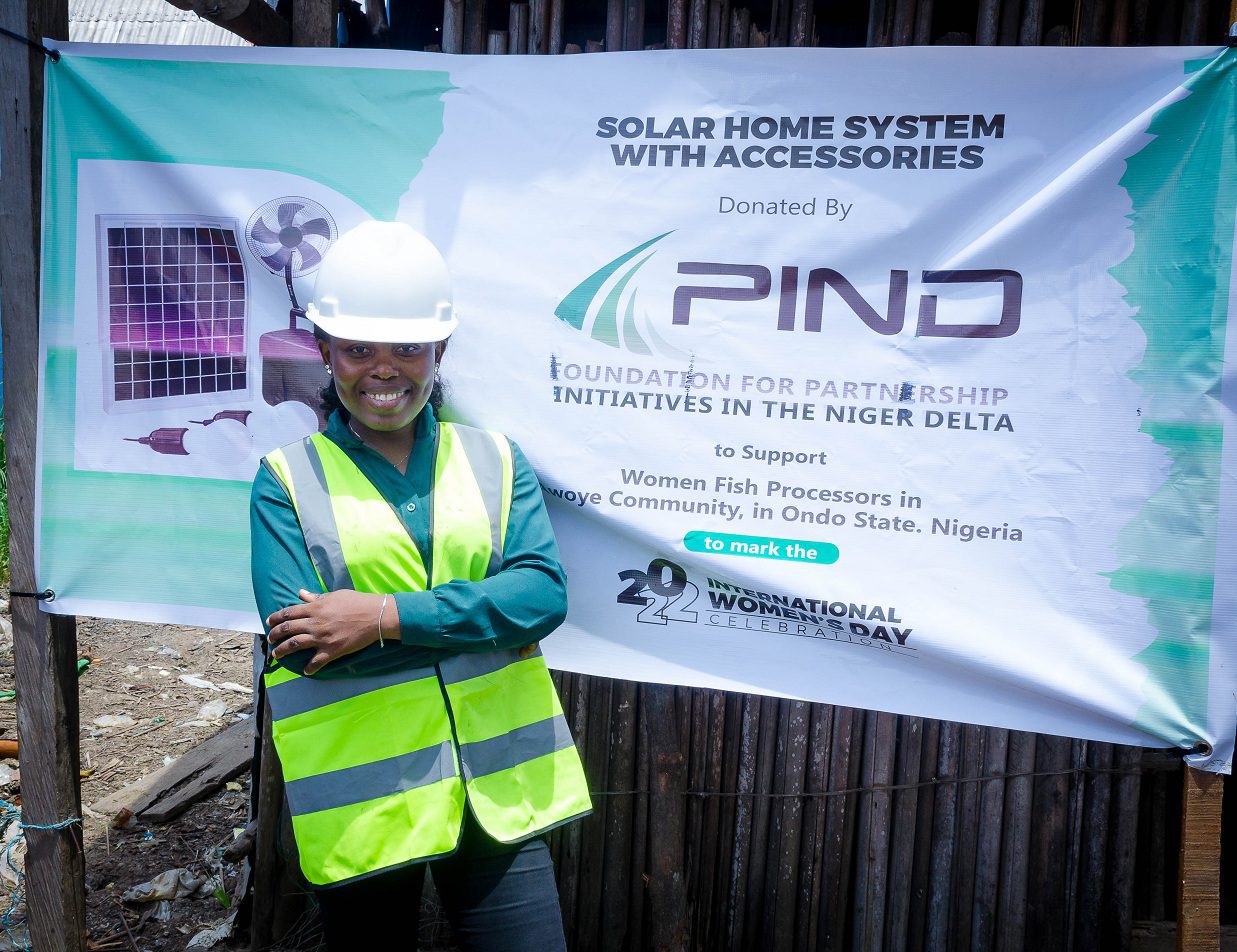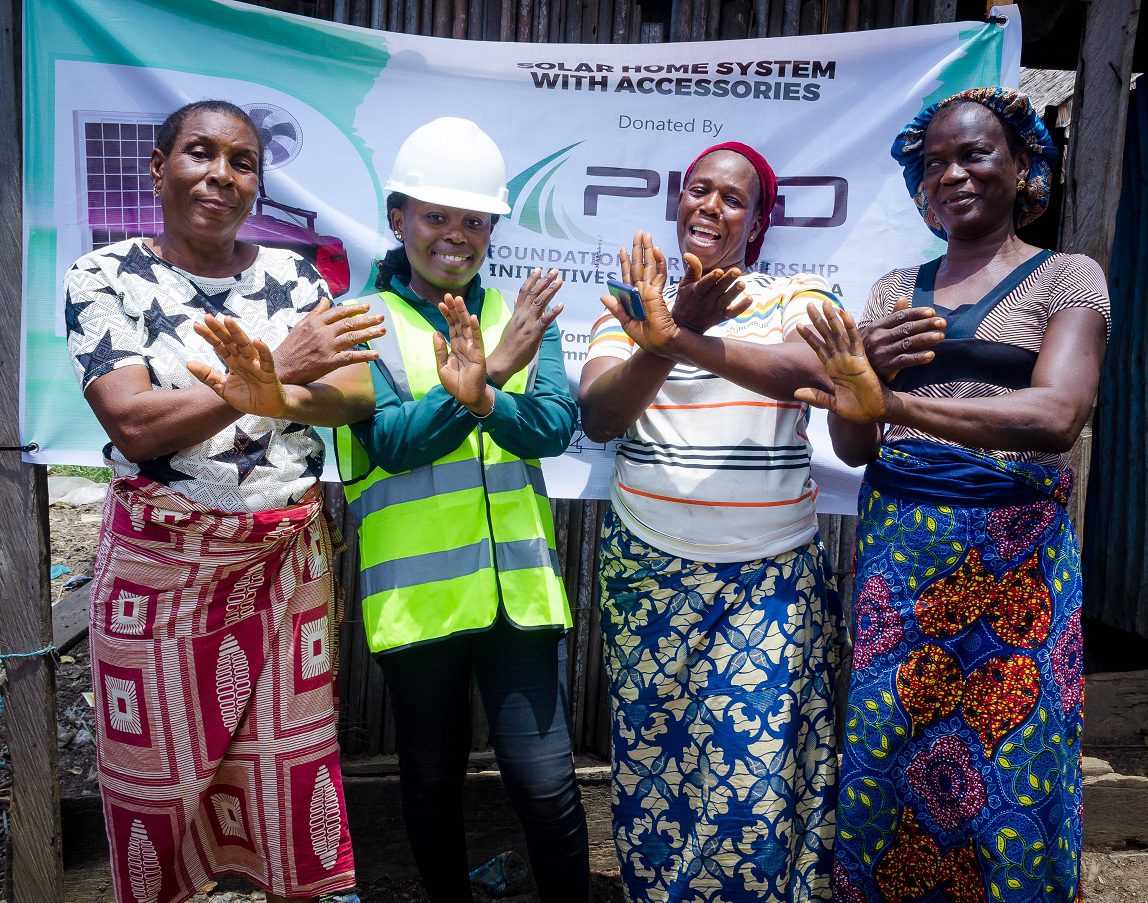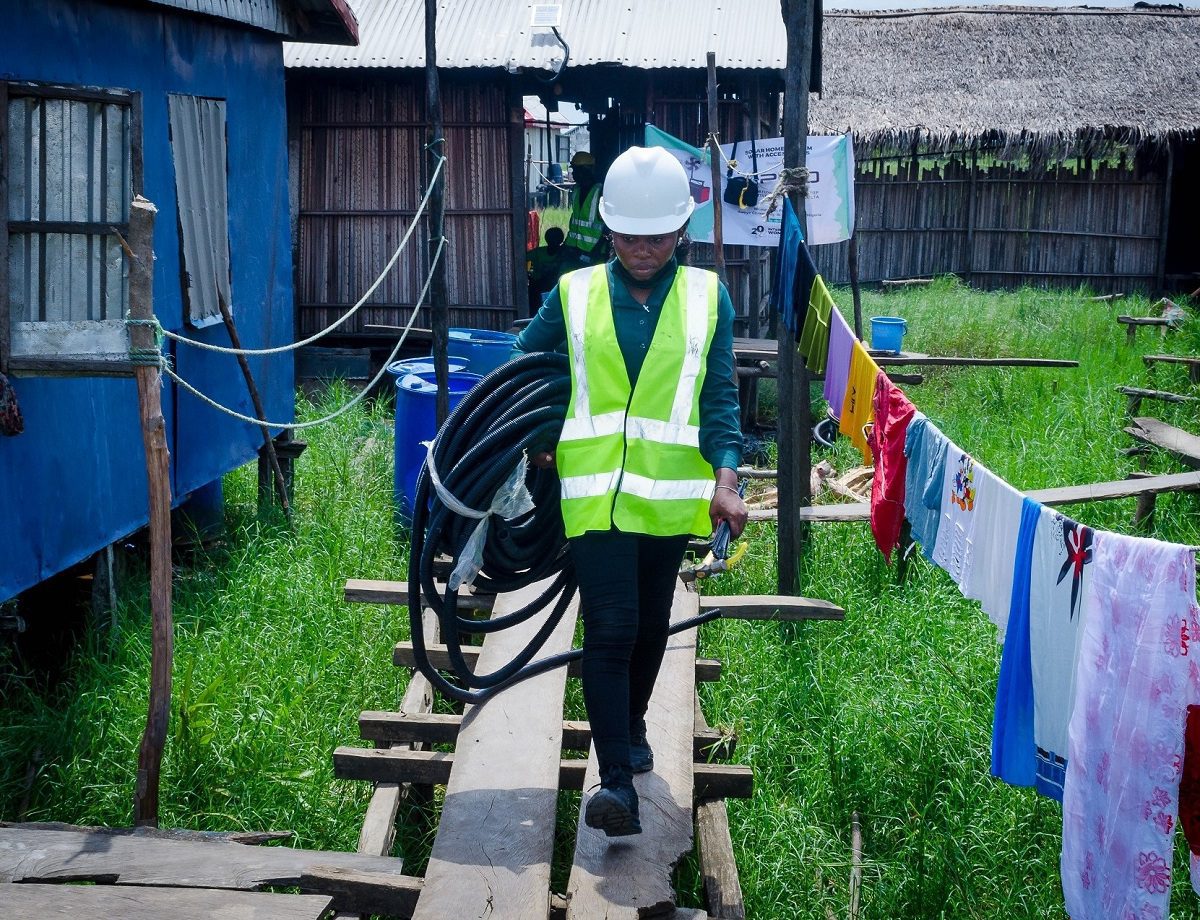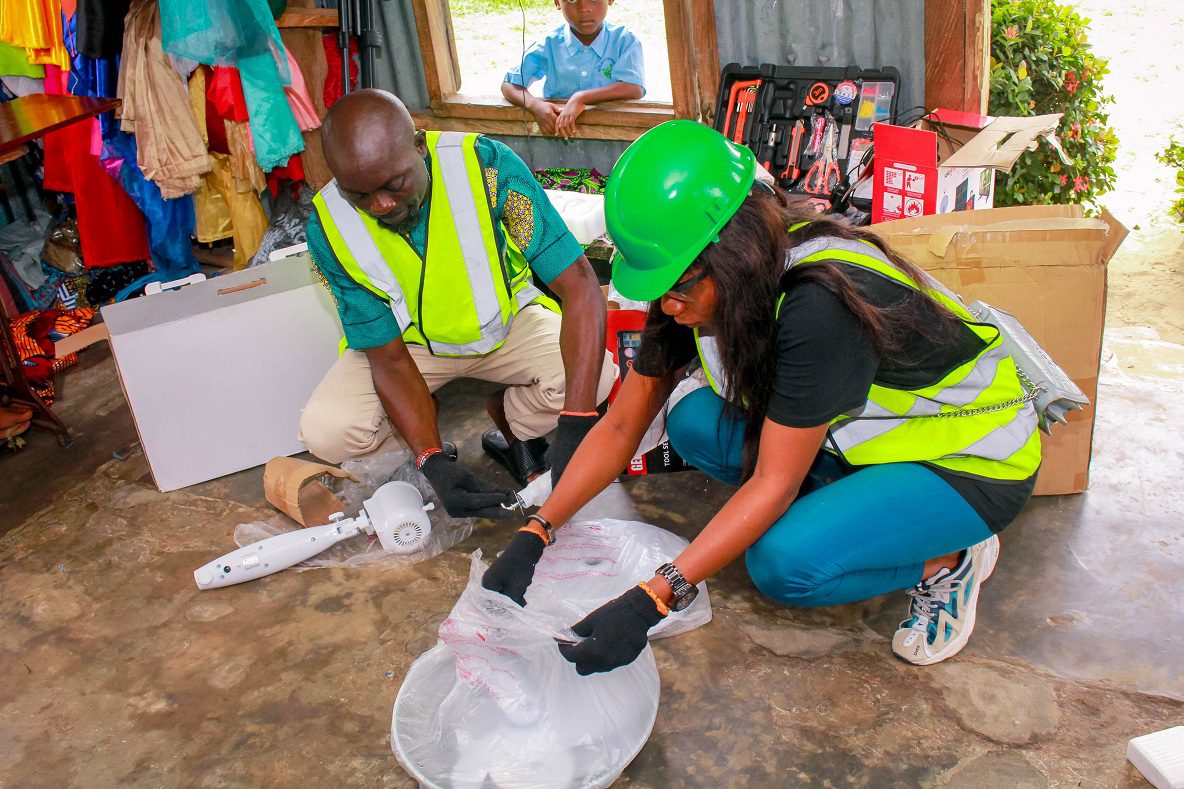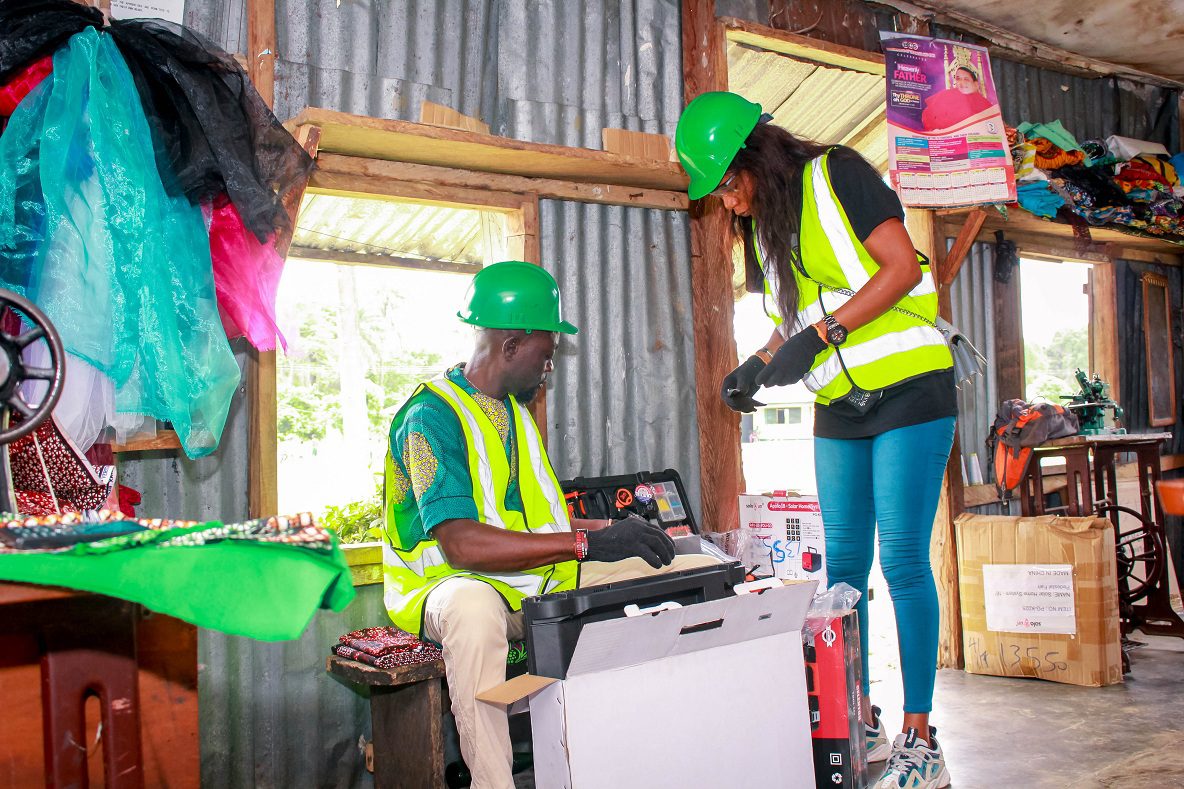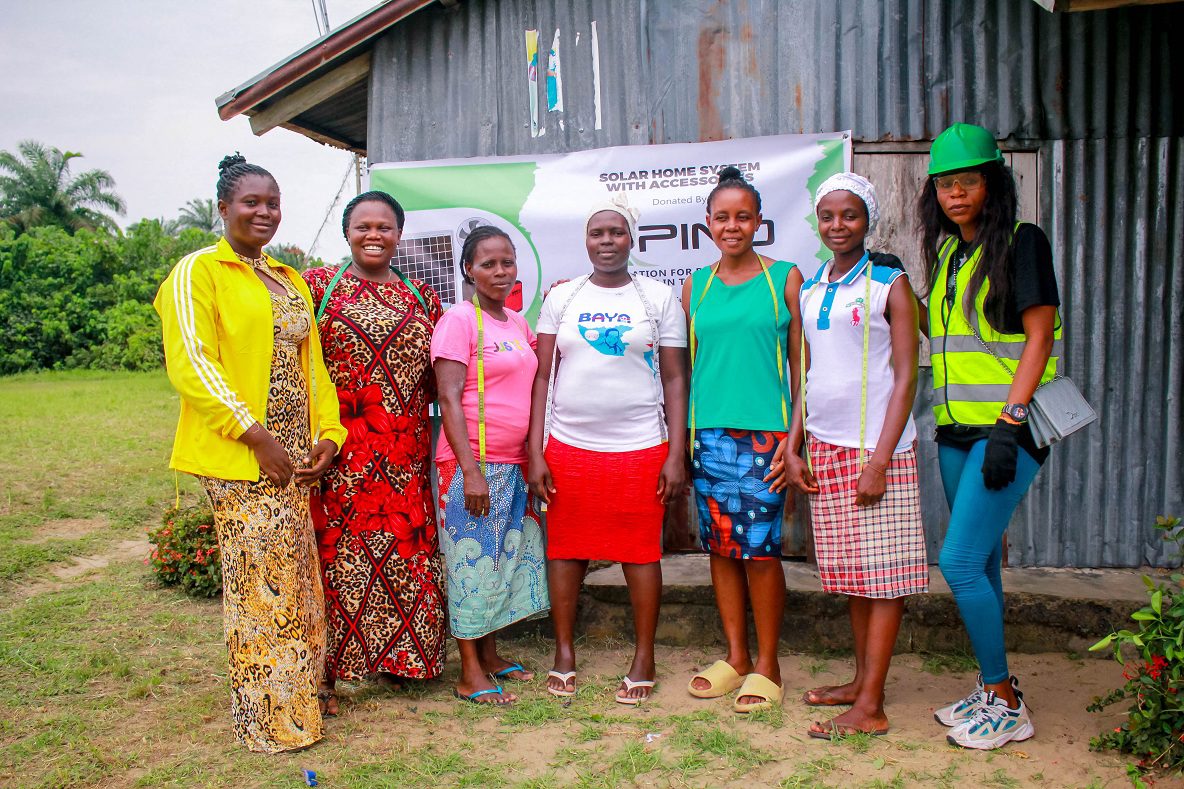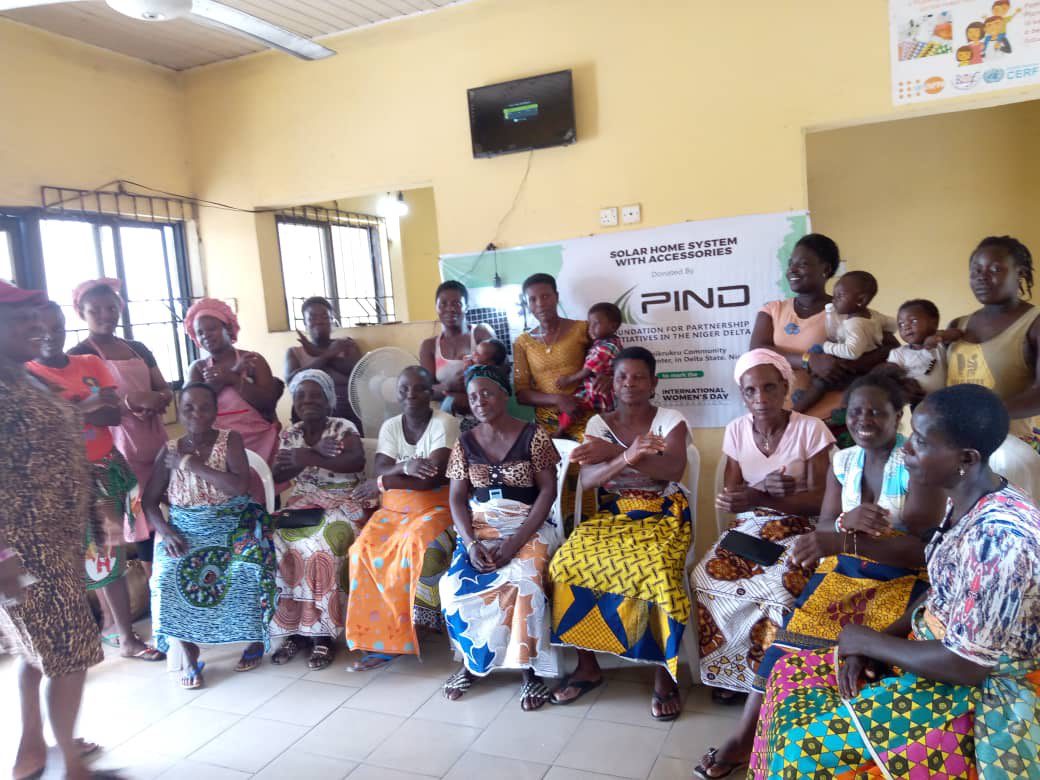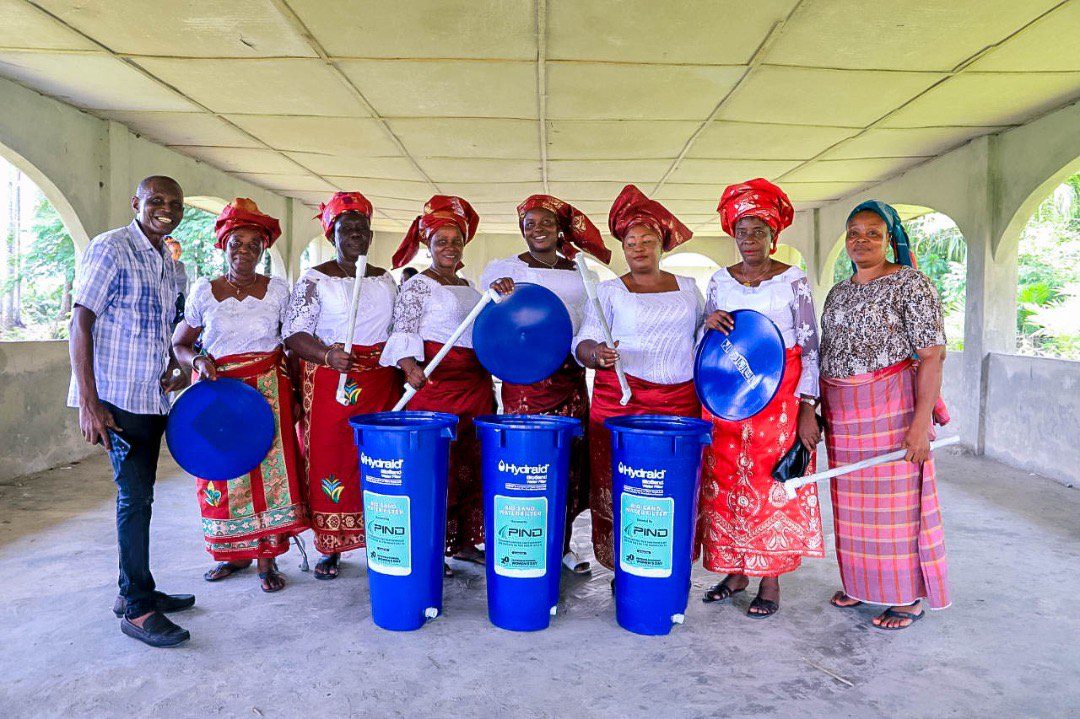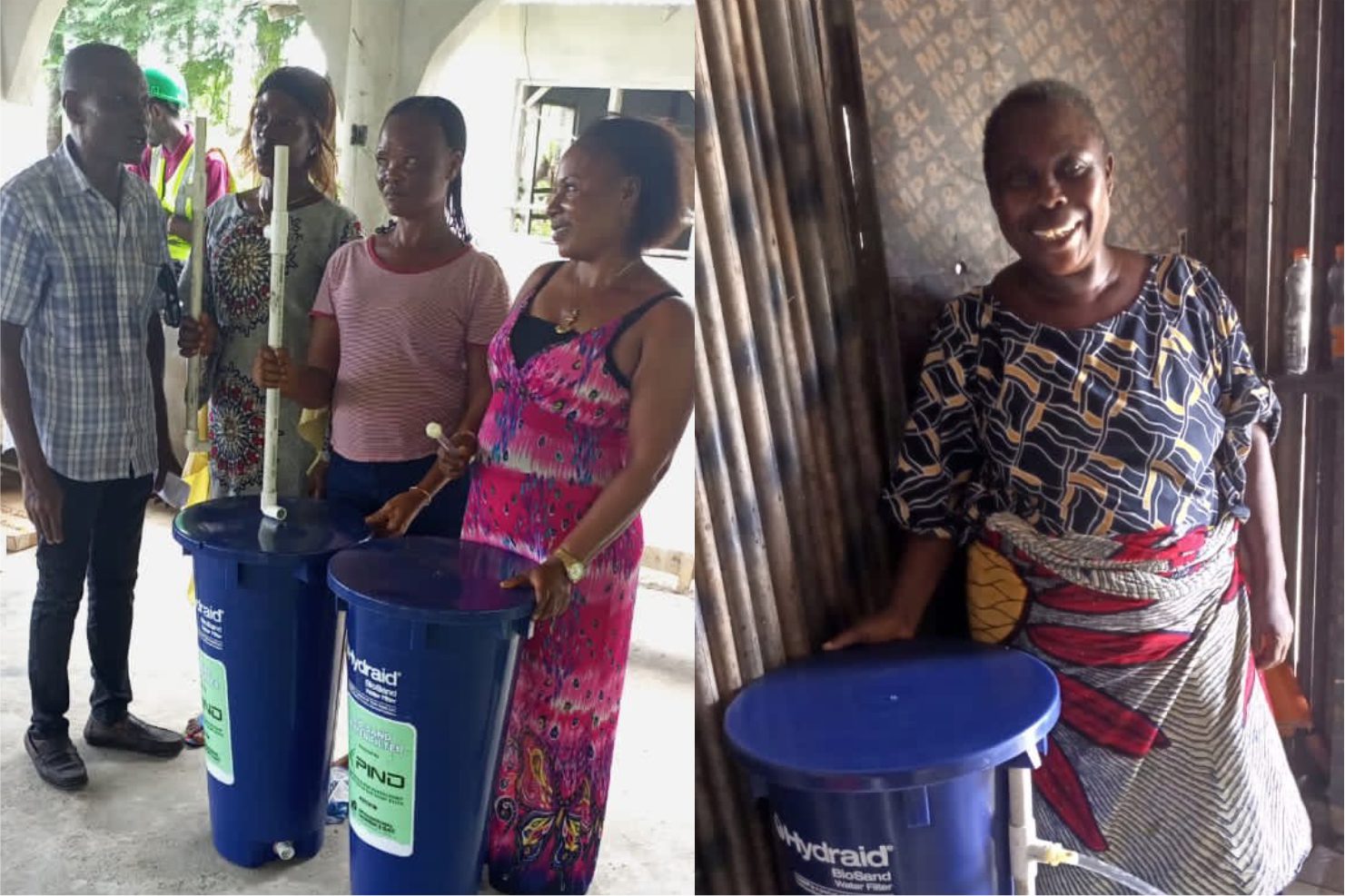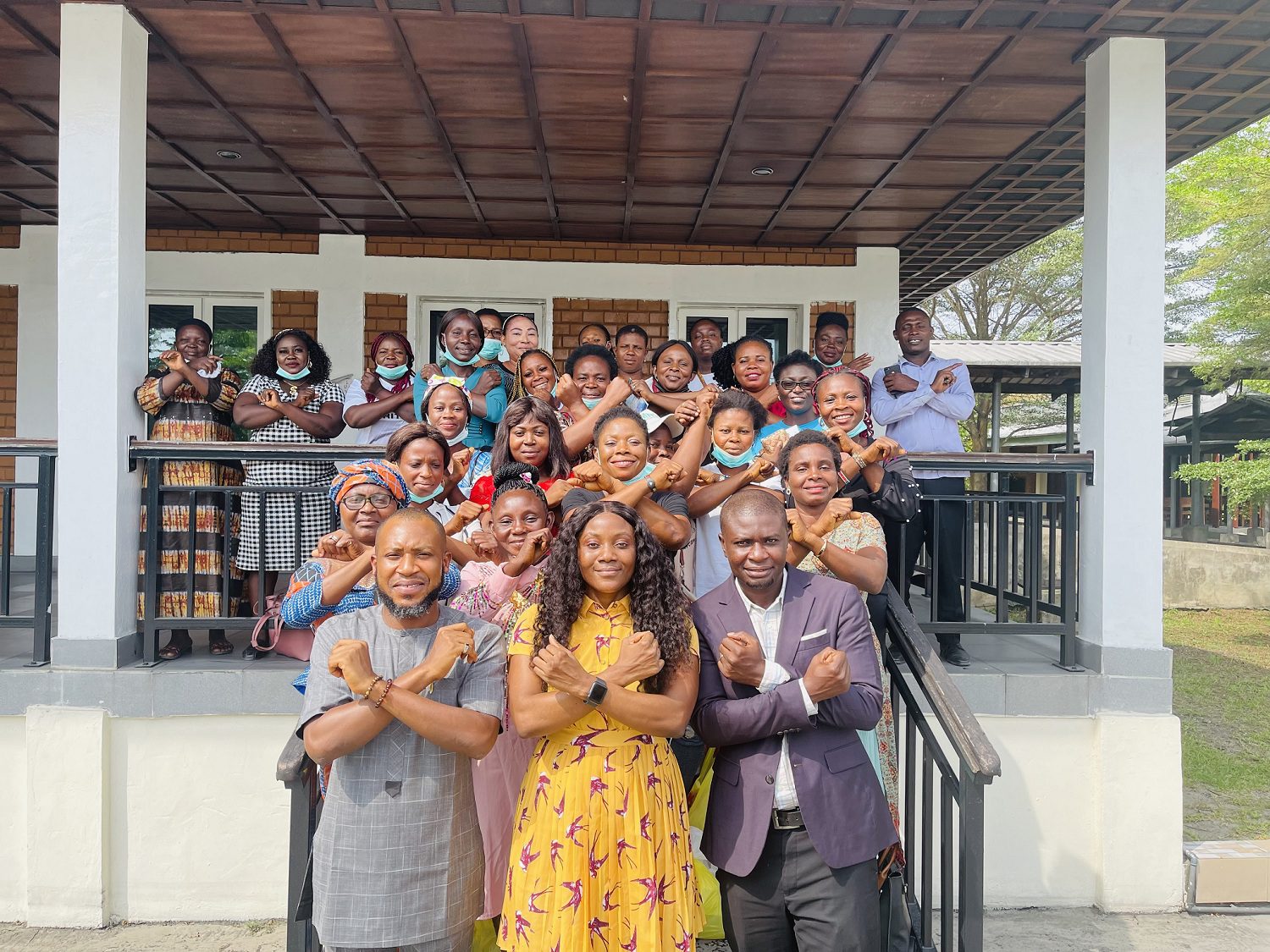
On March 8, 2022, PIND Foundation joined the global commemoration of International Women’s Day (IWD).In line with the United Nations Women (UNW) theme: “Gender equality today for a sustainable tomorrow”, our subtheme was “Sustainable Livelihoods: When Women Lead”.It celebrated the contribution of women and girls around the world who are leading the responsibility on climate change adaptation, mitigation and response to build a more sustainable future for all, with special reference to the Niger Delta region of Nigeria.
PIND celebratedIWD 2022 with specific interventions divided into two strands based on our program areas: economic development and peacebuilding. The former identified women in the Niger Delta region who engage in direct and indirect economic development activities for the sustainability of their families and the society, and empowered their adoption of environmentally friendly technologies, energy and access to potable water to mitigate the negative impact of climate change and boost their business for economic growth and a sustainable tomorrow. The latter attempted to offset the gap in women’s participation in leadership and decision-making in their communities through increasing their leadership and peacebuilding skills, as well as improving their resource management abilities.
PIND’s IWD 2022 activities were location-based. We provided support in the urban and rural areas, targeting women in the agricultural value chain sector, business start-ups, women who have leadership roles as well as women/People With Disabilities (PWDs) in various communities in Delta, Bayelsa and Ondo States.
Distribution of smoking kilns and peace building training
In our urban outreach, we provided support to women farmers at Alero Fish Farm, a fish farming cluster in Egbokodo Itsekiri, Warri, Delta State. To stem the use of fossil fuel such as fuelwood for fish smoking, the cluster was supported with improved smoking technology (smoking kiln and bio-digester) that is powered by biogas, fueled by waste products. One of the farmers was selected to manage the smoking kiln and provide quality fish smoking service to other fish farmers in the cluster at a fee. A technical training on best practices and usage of the kiln and biodigester was conducted with ten farmers in attendance. Furthermore, a training on conflict management and business development was organized for the farmer association members with twenty-four participants in attendance. The training was held at PIND’s office in Warri.
One of the fish farmers handed the smoking kiln, Owarume Christiana, had been processing fish since 2016 with a local metal drum and firewood. She said the heat and the smoke from the drum contraption affected her eyes and gave her stress. She, however, added that she believed her business and that of her colleagues in the cluster would thrive better with the availability of the smoking kiln and biodigester.
During the peacebuilding training, participants were exposed to volunteerism – focusing on the need to volunteer, approaches to volunteerism and how to volunteer for peace in the Niger Delta. The training module also included a leadership training session that highlighted the skills required for leadership, the qualities of a good leader, how leaders get things done and the challenges they face. The conflict management training was tailored to their businesses, highlighting potential causes of conflict and conflict management styles. The participants were also exposed to workable business development techniques with practical examples that they could relate to.
Access to Renewable Energy Intervention
In the rural areas,PIND installed a total of seven solar home systems (SHS) in five communities to provide electricity that will support businesses of women that are underserved and are most vulnerable for improved livelihood and increased income. To ensure greater impact, the systems and some accessories (television and fan) were installed in locations such as community health care centers, secretariat, business centers, and smoking kitchens for social and commercial purposes. For effective management and sustainability, the beneficiaries would pay a token for the maintenance of the solar home systems.
In Delta State, three SHSs each were installed in Tebu, Ajamita and Benikrukru communities; three installed in Awoye community, Ondo State; and one in Sangana, Bayelsa State. The installations done with technical support from PINDs implementing partners, A4&T Power Solutions Limited and Diligent International Ventures, aimed at strengthening PIND’s commitment to improving energy access in rural communities while advocating for a more gender inclusive energy transition.
Three women-led teams of engineers carried out the installations in the various locations and educated the beneficiaries on the product and its usage.
Some of the beneficiaries testified that they had not had electricity in their community in “ages”. One of them noted that “this light will save me the stress of paying transport fare to another community to charge my phone. I will now have time for other things and my customers will be able to reach me”. And in Sagana, Bayelsa State, a 50w SHS was installed to support fifteen women owned businesses such as sowing and fish processing. The beneficiaries appreciated PIND Foundation for her efforts and appealed to PIND to support more households and businesses with the SHSs.
Improving Access to Potable Water
To improve access to potable water, PIND distributed a total of twenty bio-sand filters to twenty households in Tsekelewu, Opuama, Ajamita, Gbokodaand Tebu in Delta, and Awoye, Ondo State. The recipients were also trained on how to use the water filters.
Thanks to IWD activities, we have increased business opportunities and income generation amongst women and PWDs, improved standard of living through access to electricity and clean water, increased participation of women in issues around climate change, environmental protection and its intersection with socio-economic development and increased number of women in leadership in areas of economic development and peacebuilding.
PIND will monitor/track progress and usage of the improved technologies, as well as the economic benefits of the access to electricity and potable water in the lives and businesses of the beneficiaries.
